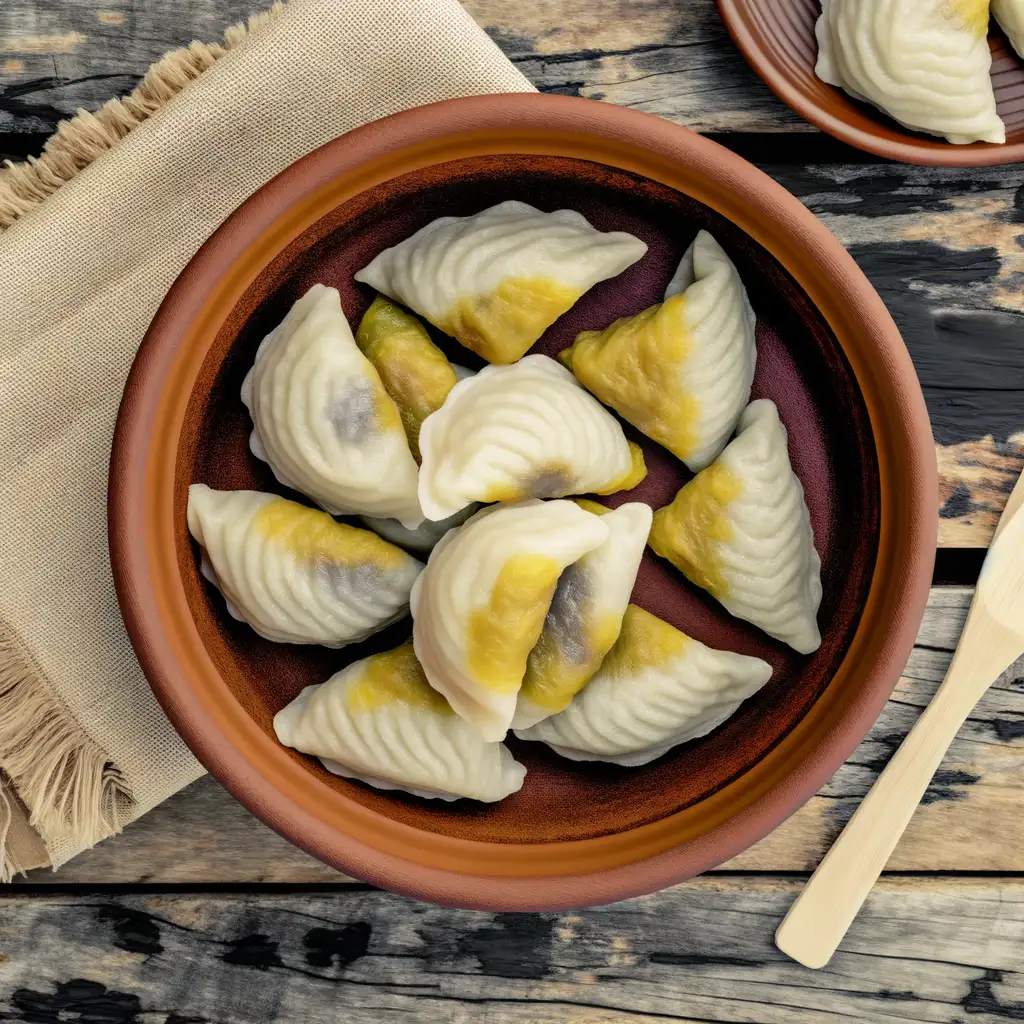


If you ever find yourself craving a place where the pulse of tradition meets the hum of a bustling city,Guwahati is where you want to be. The moment you step into this vibrant northeastern hub,you’re greeted by the gentle roar of the Brahmaputra River weaving through the city,its waters shimmering under the golden sun. The air carries a mix of earthy scents from nearby tea gardens and the spicy aroma of street food stalls sizzling with momos and pithas. It’s a city that feels alive,where ancient temples like Kamakhya stand proudly atop hills,whispering stories of centuries past,while colorful markets buzz with locals bartering over fresh produce and handwoven textiles. Walking through Guwahati,you’ll hear a symphony of sounds — the chatter of Assamese,the rhythmic beats of traditional drums,and the occasional call of a boatman navigating the river. The city’s character is warm and welcoming,with people who are eager to share their culture and cuisine. Don’t miss trying the local fish curry or sipping on a cup of Assam tea,which tastes like a warm hug in a cup. Evenings here are magical,with the riverbanks lighting up and the city’s skyline reflecting in the water,inviting you to slow down and soak it all in. Guwahati isn’t just a stopover; it’s a place that invites you to explore its layers — from its spiritual roots to its lively street life. It’s a city that stays with you,long after you’ve left,making you want to return and discover even more.
The information on this page is currently being reviewed by Tripkliq and should be used as a guide only
Eng word: Hello
Eng pronunciation: Nomoskar
Local language: নমস্কাৰ
Eng word: Goodbye
Eng pronunciation: Bidai
Local language: বিদায়
Eng word: Thank you
Eng pronunciation: Dhonyobad
Local language: ধন্যবাদ
Eng word: How much
Eng pronunciation: Kiman
Local language: কিমান
Eng word: Toilet
Eng pronunciation: Prosrabagar
Local language: প্ৰস্ৰাৱাগাৰ
Eng word: Help me
Eng pronunciation: Mor Sahay Korok
Local language: মোৰ সহায় কৰক
Eng word: Yes
Eng pronunciation: Hoy
Local language: হয়
Eng word: No
Eng pronunciation: Nohoy
Local language: নহয়
Eng word: Excuse me
Eng pronunciation: Maf Koribo
Local language: মাফ কৰিব
Guwahati was historically known as Pragjyotishpura, which means 'City of Eastern Light.' It was the capital of the ancient kingdom of Kamarupa, making it one of the oldest continuously inhabited cities in India.
The Kamakhya Temple, located on the Nilachal Hill, is one of the most revered Shakti Peethas in India. It dates back to the 8th-9th century and is a major pilgrimage site for devotees of Goddess Kamakhya.
Guwahati played a significant role during the Ahom dynasty's rule (1228–1826). The Ahoms contributed to the city's development and built several temples, including the Umananda Temple on Peacock Island.
Peacock Island, located in the middle of the Brahmaputra River, is the smallest inhabited river island in the world. It is home to the Umananda Temple and is a serene spot for tourists.
The Battle of Saraighat (1671) was a historic naval battle fought on the Brahmaputra River near Guwahati. The Ahom general Lachit Borphukan led the Ahom forces to victory against the Mughals, showcasing exceptional bravery and strategy.
The Navagraha Temple, situated on Chitrasal Hill, is dedicated to the nine celestial bodies (Navagrahas) in Hindu astrology. It is an important site for those interested in astronomy and astrology.
The mighty Brahmaputra River flows through Guwahati, adding to the city's charm. It is one of the few rivers in the world with a male name and is a lifeline for the region's culture and economy.
The Assam State Museum, established in 1940, is one of the oldest museums in Northeast India. It showcases the region's rich cultural heritage, including sculptures, manuscripts, and tribal artifacts.
Named after the great saint Srimanta Sankardev, this cultural institution in Guwahati is a hub for art, culture, and history. It offers a glimpse into Assam's diverse traditions and heritage.
In Guwahati, the most common Power Adaptor is Type D, Type M, Type C.







Rice cakes or dumplings that can be sweet or savory, often filled with ingredients like jaggery, coconut, or lentils, and are popular during festivals.

A flavorful noodle soup made with rice noodles, fish, and a variety of spices, often garnished with fresh herbs.

A tangy fish curry made with fresh fish, tomatoes, and a blend of local spices, typically served with rice.

A traditional Assamese dish made with raw papaya, pulses, and the unique ingredient 'khar' (alkaline water filtered through the ashes of the plant), giving it a distinct flavor.

A rich and aromatic curry made with duck meat, cooked with local spices and herbs, often enjoyed with rice.

A simple mashed potato dish mixed with mustard oil, green chilies, and onions, served as a side with rice.

A traditional Assamese chicken curry made with bamboo shoots, giving it a unique flavor and texture.

A popular breakfast dish made with flattened rice (chura) mixed with yogurt and jaggery, often enjoyed with fruits.
Imagine stepping into a place where the air feels fresher,the hills roll gently like a soft green blanket,and the rhythm of life slows just enough for you to breathe it all in—that’s Shillong. Nestled in the hills of Northeast India,this city has a laid-back charm that’s both refreshing and invigorating. As you wander through its streets,you’ll hear the melodic hum of Khasi conversations mingling with the distant strum of guitars from cozy cafes. The scent of pine and wet earth after a light drizzle wraps around you like a comforting shawl.
Shillong’s character is a beautiful blend of indigenous Khasi culture and a subtle colonial past,giving it a unique vibe that’s both vibrant and soulful. The locals are warm and welcoming,often eager to share stories over a steaming cup of the region’s famous orange pekoe tea. Don’t miss the chance to taste the local delicacies—imagine biting into a spicy jadoh or savoring the tangy sweetness of fresh pineapples grown right in the hills.
What really stays with you is the city’s soundtrack:the laughter echoing from the bustling Police Bazaar,the gentle rush of waterfalls nearby,and the occasional burst of music from a street performer. Shillong isn’t just a place to visit; it’s a place to feel alive,to connect with nature and culture in a way that lingers long after you’ve left.
Majuli,the world's largest river island,is located on the Brahmaputra River and is renowned for its unique culture,vibrant festivals,and scenic beauty.
ExploreKolkata feels like stepping into a living,breathing storybook where every street hums with history and heart. The city’s energy is a warm,bustling embrace—chaotic yet comforting,like a favorite old song you didn’t know you loved until you heard it live. Walking through its crowded lanes,you’ll catch the scent of freshly fried kachoris mingling with the earthy aroma of monsoon-soaked earth,while the distant clang of tram bells and the chatter of vendors create a lively soundtrack.
What makes Kolkata truly unforgettable is its soul—deeply intellectual yet wildly creative. It’s a place where poets and artists have left their mark on every corner,from the colonial-era architecture to the vibrant street art. The city pulses with a love for literature,theater,and music,and you can feel it in the air,especially during evenings when cafés fill with animated conversations and the aroma of strong chai.
Don’t miss the chance to savor authentic Bengali sweets like rosogolla and sandesh,or to sit by the Hooghly River as the sun sets,watching ferries drift lazily by. Kolkata’s charm lies in its contradictions—old and new,noisy and serene,simple and sophisticated—all woven together with a warmth that invites you to slow down and soak it all in. Trust me,once you’ve wandered its streets and tasted its flavors,Kolkata stays with you long after you leave.
Known as the 'Tea City of India',Dibrugarh is a gateway to the Brahmaputra River and offers stunning views of tea gardens and the nearby Dibru-Saikhowa National Park.
ExploreIf you ever find yourself craving a place where the ocean breeze carries stories of adventure and the rhythm of waves sets your pace,Port Blair is where you want to be. This city feels like a gentle invitation to slow down and soak in the raw beauty of island life. The moment you step off the ferry or plane,the salty air mingled with the scent of tropical flowers wraps around you like a warm hug. Palm trees sway lazily against a backdrop of turquoise waters,and the chatter of locals blends with the distant call of seabirds,creating a soundtrack that’s both lively and soothing.
Port Blair isn’t just a gateway to the Andaman Islands; it’s a place where history whispers through the walls of the Cellular Jail,a somber yet inspiring reminder of India’s past. But beyond its historical weight,the city pulses with a laid-back charm—colorful markets burst with fresh seafood,exotic fruits,and spices that tease your senses. Grab a plate of freshly caught fish grilled with local herbs,and you’ll taste the ocean’s essence in every bite.
What makes Port Blair truly special is its blend of cultures and the warmth of its people. You’ll find a mix of indigenous traditions and influences from across India,all coexisting in a relaxed,welcoming vibe. Whether you’re wandering along Corbyn’s Cove Beach at sunset or chatting with fishermen mending their nets,there’s a genuine friendliness here that makes you feel like you belong. It’s a place that invites you to explore,reflect,and simply be.
If you ever find yourself craving a place where time slows down just enough to savor every moment,Imphal is that kind of city. Nestled in the lush hills of Manipur,it greets you with a gentle,unhurried rhythm that feels like a warm embrace. The air carries a fresh,earthy scent mingled with hints of blooming wildflowers and the distant aroma of sizzling street food—think smoky grilled fish and spicy bamboo shoot curry that tease your taste buds before you even sit down.
Walking through Imphal’s bustling markets,you’ll hear a lively mix of Meitei chatter,the clatter of wooden crafts,and the occasional burst of traditional Manipuri music. The city’s character shines through its people—friendly,proud,and deeply connected to their rich heritage. You can’t help but be drawn into the vibrant tapestry of colorful handwoven textiles,intricate jewelry,and the stories behind them,told with a sparkle in the eyes of local artisans.
What makes Imphal truly unforgettable is its blend of natural beauty and cultural depth. From the serene Loktak Lake,where floating phumdis drift lazily,to the ancient Kangla Fort whispering tales of bygone eras,every corner invites curiosity. It’s a place where you don’t just visit; you feel the pulse of a living culture,taste its flavors,hear its songs,and leave with a heart full of stories you’ll want to share.
Shops may sell fake or low-quality handicrafts claiming they are authentic Assamese products like silk or bamboo items.
Vendors may inflate prices significantly for tourists, especially for souvenirs and local goods.
Scammers may approach tourists claiming to collect donations for local charities or temples, which are often non-existent.
Unlicensed individuals may pose as tour guides and charge high fees while providing little to no value.
Unregistered agents may offer cheap travel packages or tickets, which turn out to be fake or overpriced.
Tourists may be promised cheap accommodations online, only to find the hotel does not exist or is in poor condition upon arrival.
Drivers may refuse to use the meter and charge exorbitant fares, especially for tourists unfamiliar with local rates.
Crowded areas like markets and bus stations are hotspots for pickpockets targeting tourists.
Tourists may be approached by fake priests or locals demanding money for blessings or temple entry fees.
Tourists may be lured into visiting fake or substandard tea plantations and charged high fees for tours or products.
The use, possession, sale, and distribution of narcotic drugs and psychotropic substances are strictly prohibited under the Narcotic Drugs and Psychotropic Substances (NDPS) Act,1985. Guwahati, like the rest of India, enforces strict penalties for drug-related offenses, including imprisonment and fines. Tourists should avoid any involvement with illegal drugs.
Smoking in public places is prohibited in Guwahati, as per the Cigarettes and Other Tobacco Products Act (COTPA),2003. Public places include government buildings, public transport, hospitals, educational institutions, and restaurants. Designated smoking areas may be available in some establishments like hotels and airports. Violators may face fines.
Vaping is banned in India, including Guwahati, under the Prohibition of Electronic Cigarettes Act,2019. The sale, manufacture, import, export, transport, storage, and advertisement of e-cigarettes are prohibited. Tourists should avoid carrying or using vaping devices to avoid legal consequences.
What are other people saying about Guwahati?
Recent Social posts about Guwahati
There is nothing to show you for now.